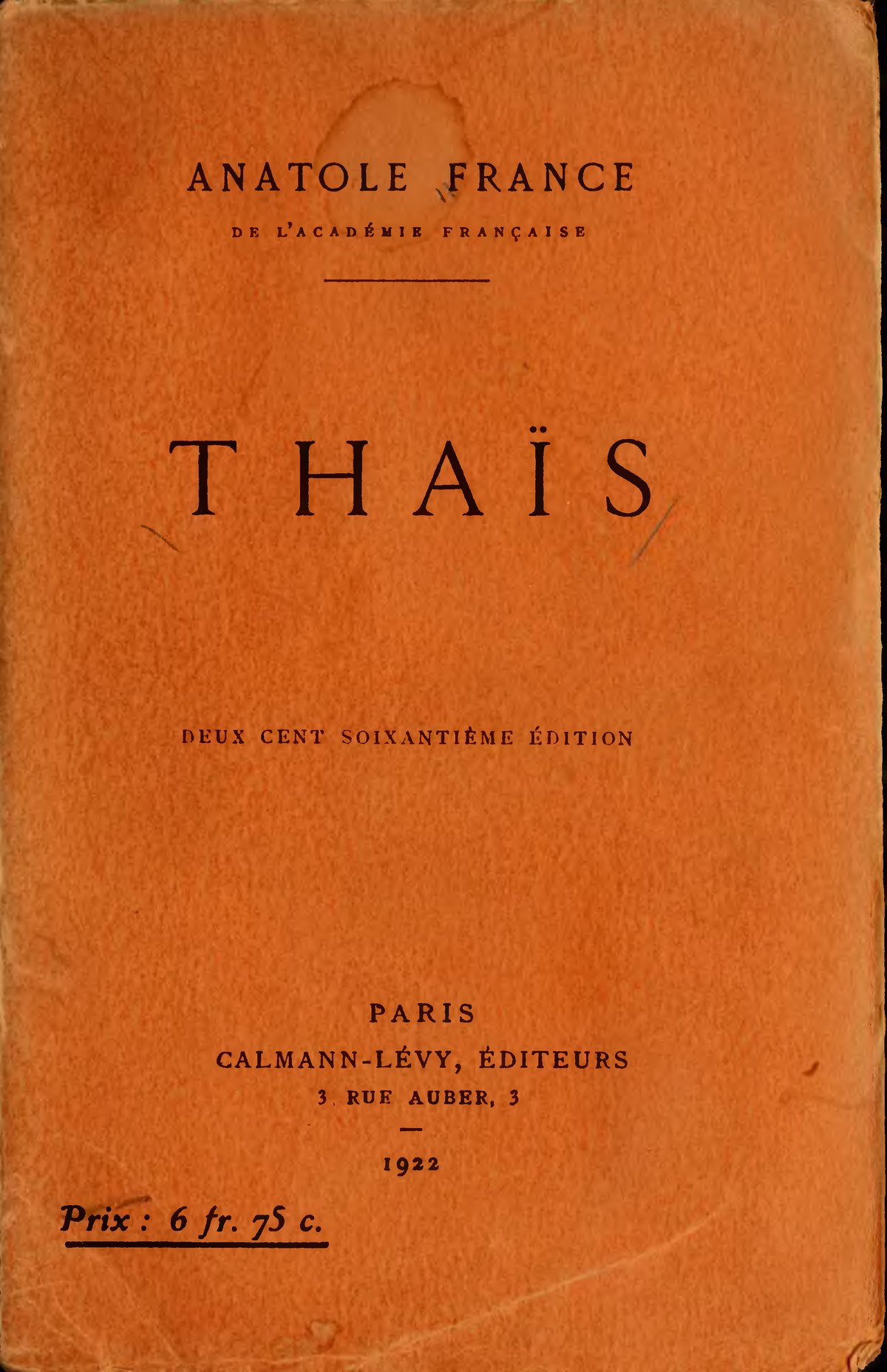PART THE SECOND
byPart the Second opens with Paphnutius standing in silence, his gaze fixed upon the barred window behind which Thais had disappeared into a life of penance. His heart, once conflicted, now beat with the calm assurance of a man who believed he had fulfilled his sacred calling. In the stillness that followed his final blessing, Paphnutius departed without fanfare, stepping away from the convent walls with the solemn dignity of one who had cast the world behind him. The thought of returning to the solitude of the desert gave him comfort; there, he would resume his communion with God, free from the distractions of worldly ties. Though no words had been exchanged in farewell, something profound had passed between them—a mutual understanding of sacrifice, renewal, and a shared reverence for divine mercy. The journey away from Alexandria became less a retreat and more a return to purpose, anchored in faith that burned ever brighter.
Far from the life she once knew, Thais embraced her cell as both prison and sanctuary. Day and night, her voice echoed softly in hymns and supplication, her soul eager to cleanse itself through silence and suffering. Each prayer whispered into the dim light was not merely ritual but a plea for healing, for transformation. With every passing hour, the trappings of her former life faded, replaced by the simplicity of devotion and the quiet rhythm of repentance. The walls of her narrow space, though unyielding, gave her a freedom unknown before—a liberation not of the body, but of the spirit. She had known luxury, adoration, and sin; now she sought only obscurity before God’s eyes, hoping her tears might water the soil of her soul. Redemption was not demanded, but awaited with the patience of one who had truly come to understand the cost of grace.
Back in the desert, Paphnutius resumed his life of rigorous solitude, but he did so with a different heart. His prayers, once laced with judgment, now flowed with humility and awe, recognizing that divine love extended even to those he had once deemed unworthy. The desert winds that once sang of glory now whispered of compassion and forgiveness. Paphnutius began to see the beauty in human frailty—not as a flaw to be purged, but as a pathway to understanding the boundless reach of God’s mercy. No longer did he seek isolation as a means of superiority; instead, it became his space for gratitude, shaped by the quiet knowledge that salvation was never earned, only accepted. The image of Thais remained with him, not as temptation, but as testament to how deeply God could move even the most wounded heart.
Meanwhile, the convent became a place of pilgrimage, though no visitors saw Thais. Her story, once whispered in judgment, began to travel through the city as one of awe and mystery. Tales of the beautiful courtesan who vanished into a cell of stone stirred curiosity, reverence, and the occasional desire for personal change. Though she never reemerged from her enclosure, her transformation became a living parable among the people—proof that no past could bar someone from the promise of spiritual rebirth. Monks spoke her name with solemnity, and those burdened by guilt found solace in the idea that someone so lost could still be found. In time, Thais’ isolation became a beacon, her silence louder than sermons, her humility more compelling than ritual. Her very disappearance served as divine presence, turning her into a silent preacher to a world in need of hope.
The lives of both Paphnutius and Thais continued in separation but not in disconnection. Though they would never meet again, each was shaped permanently by the other, their journeys intertwined like branches that once crossed and now grew in different directions. The act of leading Thais to repentance had transformed Paphnutius more than he realized. In trying to save her, he had discovered his own blind spots, his own limitations, and the infinite patience of grace. Likewise, Thais had found in his stern guidance a gateway not only to spiritual awakening but to dignity and inner peace. Their love, unspoken and perhaps never even fully recognized, had become something sacred—not romantic, but redemptive.
This chapter closes not with grand miracles or public proclamations, but with quiet perseverance in faith. Redemption is shown not as a moment, but a path walked daily, often in solitude, often without certainty. In the silence of the desert and the silence of the cell, the same prayer rose—fragile yet unyielding—echoing the truth that salvation is possible not because we are worthy, but because we dare to seek it anyway.

